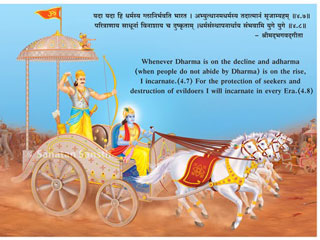

1. Chief Advisor of Maharashtra Gazetted Officers Federation appeals to the Chief Minister not to reveal identities of corrupt employees in the media
Mr GD Kulthe, Chief Advisor of Maharashtra Gazetted Officers Federation recently wrote to the Chief Minister and Deputy Chief Minister of Maharashtra. He requested the Government not to reveal the identity of any employee to the media even if the employee is caught red-handed while accepting a bribe. Publication of such a case in the newspapers results in defamation of the concerned employee, and his family and relatives have to bear social wrath.
Later, the accused is acquitted by the Courts. And so, the name or photograph of the accused should not be released to the media till the Court convicts him. For this, Mr Kulthe referred to a circular issued by the Director General of the Anti-Corruption Department in Rajasthan. According to the circular, unless a Government employee is found guilty by a Court of law, his name or photograph should not be made public. He cited another reason – after perusing the Court verdicts, it has been found that not all the accused arrested are guilty. This leads to irreparable defamation of the acquitted employees during the course of the judicial process.
2. Accepting Mr Kulthe’s appeal would mean supporting corruption
Basically, Mr Kulthe’s appeal is wrong. The judicial process says – even if a false case is filed regarding corruption, it does not acquit the corrupt employee, nor is this fact mentioned in the verdict. In corruption cases, evidence is necessary to prove the crime. The accused either drags the witnesses to his side or emotionally challenges them to change their testimony. In some cases, loopholes are deliberately left out with the help of the Police. The accused get the benefit of such aspects.
3. To stop corruption, it is necessary to allow corrupt people to be defamed in society
Corruption is rampant across India today. No work gets done in Government offices without bribes. Due to this, many schemes of the Government have not been completed. Prime Minister Modi is keen that bribes should neither be taken in any Government job, nor should the people offer it. The Government insists on conducting every transaction Online to maintain transparency. This was also one of the reasons behind demonetisation. So, this appeal is completely wrong.
In other criminal cases, Police misconduct implicates innocent people, but this does not fall under the category of bribery. The victim often visits the office for legitimate work, but he is silenced. Besides, there is competition between the Government and Police departments to accept bribes, thinking that corruption is a normal acceptable practice.
There is not a single department where corruption does not take place. And hence, if the identity of the corrupt employees is revealed as ‘accused’ and they’re exposed in the media, only then there will be fear of defamation. If the allegations against corrupt people are proved, the related news should be given more publicity. Then, there will be some fear of society. Keeping these things in mind, the Chief Minister and Deputy Chief Minister should not accept Mr Kulthe’s appeal. Rather, corruption cases should be tried in fast-track Courts.
The Supreme Court has expressed displeasure over the pressure on witnesses to change their testimonies in corruption cases. It has expressed concern that there is no fear of the law in society. Since the judicial process is time-consuming, many times in this period the witnesses are transferred to some other place or they retire. After that, they are not interested in testifying. If the guilt of the accused is not proved due to such reasons, it is not appropriate to say that the allegations against them were wrong.
Editorial Comments
|
II Shrikrushnarpanamastu II
– H.H. (Adv.) Suresh Kulkarni, Bombay High Court (8.1.2023)

 Radiant Thoughts of Sachchidananda Parabrahman (Dr) Jayant Athavale
Radiant Thoughts of Sachchidananda Parabrahman (Dr) Jayant Athavale Law banning Conversion of Religion is against Individual Freedom : Babbles Former Judge S Muralidhar
Law banning Conversion of Religion is against Individual Freedom : Babbles Former Judge S Muralidhar Editorial : Khalistan, Balochistan and Pakistan
Editorial : Khalistan, Balochistan and Pakistan After India becomes a ‘Hindu Rashtra’, Russia will embrace Hinduism and spread it globally : Nostradamus’ Prophecy
After India becomes a ‘Hindu Rashtra’, Russia will embrace Hinduism and spread it globally : Nostradamus’ Prophecy ‘Halt Public Spending on Aurangzeb’s Tomb, Prioritise Maharashtra’s Heritage’ : HJS
‘Halt Public Spending on Aurangzeb’s Tomb, Prioritise Maharashtra’s Heritage’ : HJS Noise Pollution, Loudspeakers, and the Law
Noise Pollution, Loudspeakers, and the Law